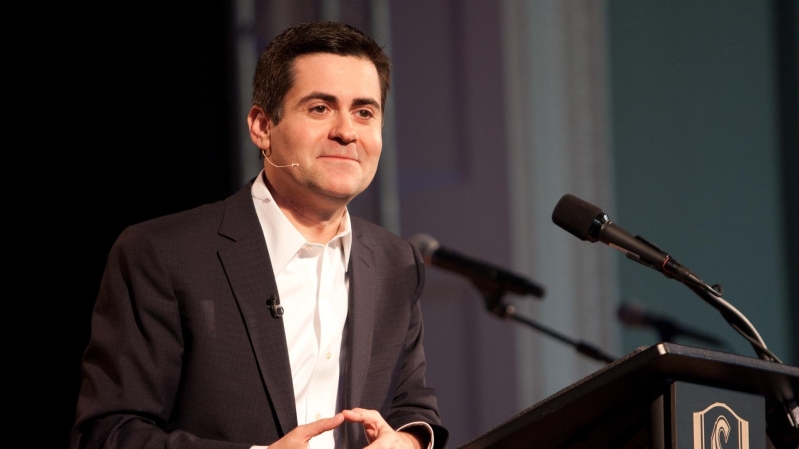
Russell Moore, president of the Southern Baptist Convention's Ethics & Religious Liberty Commission, has said evangelical pastors should continue signing marriage licenses as the church continues to grapple with the Supreme Court's June 26 decision to legalize same-sex marriage in all 50 states.
In a recent Q&A session with the Gospel Coalition, Moore explained why he does not think evangelical pastors should stop signing marriage licenses - at least not yet.
"If we were to ever get to the point where the government would say to a pastor that he must sign a marriage license for a couple that's not Biblically qualified to be married, then yes, we should say, 'We will no longer sign marriage licenses at all and we will be disobedient to that,'" he said.
However, Moore contended that we're not yet at that point.
"There are all sorts of people who are married in the civil arena that I would not marry, as a pastor of a Gospel church and as a minister of the Gospel of Jesus Christ," he explained.
He charged that we need to "recognize that the civil aspect of marriage is important in the public good, because there are some people who will say, 'Well, shouldn't the government just get out of the marriage business altogether?'"
"The government can't get out of the marriage business altogether unless the government says 'We don't care what happens to children,'" Moore continued. "That's the reason why governments are in the marriage business. So, for us to move back from simply signing marriage licenses I think would be acting too quickly and too abrasively."
The pastor argued that he may have a different opinion "if evangelical churches had a well-developed and cohesive culture of church discipline across congregations so that a couple being married in an evangelical church could be held accountable to their vows across the spectrum of Christianity."
Currently, however, the civil courts are the ones enforcing the civil vows and commitments that are being made.
"We don't have that infrastructure at this point across evangelicalism to do that," Moore said. "So, to stop signing marriage licenses at this point is a big mistake."
He further shared his thoughts on the issue in an article written for prominent conservative Christian magazine, First Things: "If the state ever attempts to force us to call marriage that which is not marriage in our churches and ceremonies, let's obey God, even if that means we sing our wedding hymns in the prison block. But, for now, by registering Gospel-qualified unions as civil marriages and not officiating at unions that are not Gospel-qualified, we call the government to its responsibility even as we call attention to its limits."
Shortly before the Supreme Court handed down the Obergefell v. Hodges ruling, making same-sex marriage legal throughout the country and requiring every state to issue marriage licenses to same-sex couples, Moore wrote that the way pastors preach must change.
"Same-sex marriage is headed for your community. This is no time for fear or outrage or politicizing. It's a time for forgiven sinners, like us, to do what the people of Christ have always done. It's time for us to point beyond our family values and our culture wars to the cross of Christ as we say: 'Behold, the Lamb of God who takes away the sins of the world.'"
He added, "Whether speaking the truth from the pulpit or over a cup of coffee, church leaders will need to decide how to best approach their congregation. This isn't the first decision to heavily affect church culture, and it won't be the last. But with communication, leaders can make steps toward unity in the midst of turmoil."






